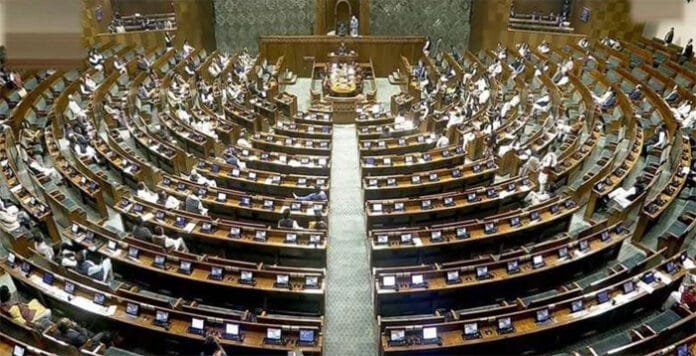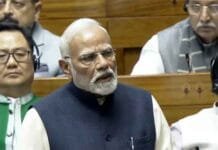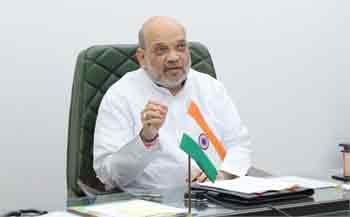The Monsoon Session of Parliament, commencing on July 21, 2025, is expected to be a legislative powerplay with the central government preparing to introduce a slew of critical bills, including a proposal to extend President’s Rule in Manipur. A total of eight new bills are on the agenda for introduction, with several others awaiting passage in both houses. This session is poised to be a turning point in shaping India’s legislative and administrative future.
President’s Rule in Manipur Likely to Continue
The spotlight of the Monsoon Session will be on the ongoing political instability in Manipur, where the central government is contemplating an extension of President’s Rule. With the northeastern state still grappling with ethnic tensions and law and order challenges, the government is likely to move a resolution in Parliament seeking approval for continuation of direct central rule under Article 356.
This move is expected to trigger a robust debate, with opposition parties demanding clarity on restoration of democratic processes in the state. However, the government maintains that until normalcy returns, President’s Rule remains essential for administrative control and coordination of relief and security operations.
List of New Bills to be Introduced in Lok Sabha
A diverse portfolio of eight new bills is scheduled to be introduced during this session, signaling the government’s commitment to reform across sectors. These are:
1. Manipur Goods and Services Tax (Amendment) Bill, 2025
This bill proposes changes to the GST framework applicable in Manipur, aligning the state’s tax system with national regulatory reforms. It is also aimed at facilitating better fiscal coordination between the center and Manipur’s administrative apparatus during President’s Rule.
2. Public Trust (Amendment of Provisions) Bill, 2025
The proposed legislation seeks to tighten oversight and introduce transparency mechanisms in the functioning of public charitable trusts across India. Key provisions include mandatory digital audits and disclosure norms for donations and grants, particularly for foreign contributions.
3. Indian Institute of Management (Amendment) Bill, 2025
This amendment will enhance autonomy and governance of the IIMs while also redefining their accountability structure under the National Education Policy 2020. It could also enable newer IIMs to receive institute of eminence status based on performance benchmarks.
4. Taxation Laws (Amendment) Bill, 2025
One of the most awaited reforms, this bill aims to streamline income tax compliance, update slabs for inflation, and integrate AI-based analytics in tax administration. It is also expected to offer tax incentives for digital startups and emerging sectors like green tech.
5. Geo-Heritage Sites and Geo-Remains (Conservation and Maintenance) Bill, 2025
This bill proposes the establishment of a National Geo-Heritage Authority to identify, protect, and maintain India’s diverse geological heritage. The legislation emphasizes preservation of rare mineral and fossil sites, which are under threat due to industrial activity.
6. Mines and Quarries (Development and Regulation) Amendment Bill, 2025
Aimed at boosting mineral production while ensuring sustainable development, this amendment will introduce stricter environmental compliance for mining companies and propose real-time monitoring of quarry operations through satellite data.
7. National Sports Administration Bill, 2025
With a vision to overhaul the country’s sports ecosystem, this bill will lay the groundwork for a National Sports Authority, replacing multiple fragmented bodies. The authority will be responsible for athlete training, performance audits, and anti-corruption vigilance in sports federations.
8. National Anti-Doping (Amendment) Bill, 2025
A timely reform in the wake of increasing doping cases, this amendment aligns Indian anti-doping laws with World Anti-Doping Agency (WADA) guidelines. It will empower the National Anti-Doping Agency (NADA) with prosecution authority and enable lifetime bans for repeat offenders.
Bills Scheduled for Passage in Lok Sabha
In addition to the eight fresh bills, several key legislations from previous sessions are lined up for debate and passage:
Readjustment of Representation of Scheduled Tribes in Goa Bill, 2024
This bill proposes a readjustment of legislative assembly seats in Goa to ensure adequate and proportional representation for Scheduled Tribes based on the latest census data. It will address long-standing demands of tribal communities in the state.
Merchant Shipping Bill, 2024
A landmark legislation aiming to consolidate India’s maritime law, this bill covers crew safety, vessel registration, port state control, and dispute resolution. It aims to bring Indian shipping laws in sync with international maritime conventions.
Indian Ports Bill, 2025
Replacing the century-old Indian Ports Act of 1908, this modern framework empowers states to play a greater role in port regulation and development. It also introduces public-private partnership (PPP) models and digital port community systems to enhance logistics.
Income Tax Bill, 2025
This is an all-encompassing tax reform bill intended to replace the existing Income Tax Act, 1961. It focuses on a simplified tax code, reduced litigation, and seamless online tax assessments. Experts anticipate major implications for individual taxpayers and corporates alike.
Political Reactions and Parliamentary Dynamics
The proposed extension of President’s Rule in Manipur is expected to draw sharp responses from the opposition, particularly the Indian National Congress, which has demanded a roadmap for democratic restoration. Regional parties from the Northeast, including NPF and NPP, are expected to voice conditional support, seeking a timeline for peace-building measures.
On the legislative front, while most bills enjoy bipartisan consensus, the Taxation Laws and Indian Ports Bills may witness intense debate over federalism and central overreach. With limited working days and a packed agenda, the success of the session will hinge on the productivity and cooperation of both houses.
Implications for Governance and Policy Reform
The Monsoon Session 2025 stands out as a legislative milestone with a mix of sectoral reforms, state-specific amendments, and national governance changes. The focus on states like Manipur and Goa, along with modernization of key sectors like taxation, education, mining, and sports, reflects a multi-dimensional approach to policymaking.
Moreover, by introducing bills aligned with international conventions (such as WADA and IMO), the government is pushing for global integration of domestic laws, a trend that will influence regulatory bodies across India.
Conclusion: A High-Stakes Session with Far-Reaching Impact
The upcoming Monsoon Session of Parliament 2025 is poised to reshape critical elements of India’s legal and administrative framework. With the introduction of eight pivotal bills and the anticipated passage of several others, the government is expected to leverage its majority to push through transformative reforms.
However, the political tightrope walk over President’s Rule in Manipur, combined with opposition scrutiny, will test the government’s ability to balance governance with consensus-building. All eyes will be on the proceedings from July 21 as the nation awaits decisive legislative action.
















